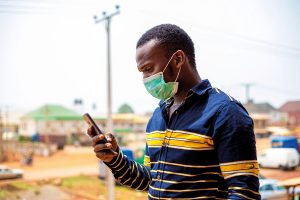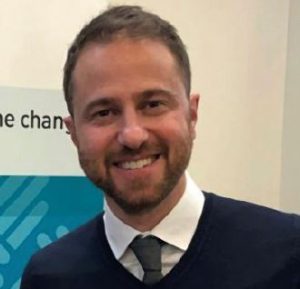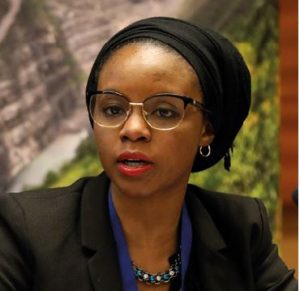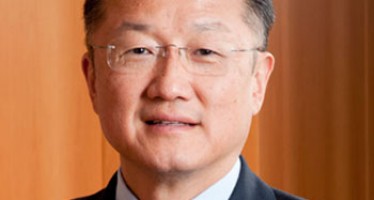World Bank on COVID-19 in Africa: Can Safety Nets Ease Social and Economic Impacts?
 Across the world, governments have geared up to respond to the socio-economic shock of the coronavirus pandemic.
Across the world, governments have geared up to respond to the socio-economic shock of the coronavirus pandemic.
Early action in countries hard-hit by the crisis range from economic stimulus packages and the lowering of interest rates to social safety nets for millions of people. From China to the UK, Morocco to South Africa, more than 190 countries have introduced various forms of social protection. The aim is to compensate workers for lost income from lockdown and the broader economic downturn, and mitigate adverse impacts on the poor and vulnerable sectors of society.
COVID-19 is expected to trigger the first recession in Sub-Saharan Africa in 25 years. In a region where roughly eight in 10 people are engaged in low-wage informal employment, many households are at risk.
Sickness will deprive individuals of earnings and can lead to impoverishing payments for medical treatment, but the effect is felt more widely across the general population. Social distancing measures curtail economic activity and disrupt supply chains; remittances from abroad dry up.
“The COVID-19 crisis is driving innovation in service delivery by promoting electronic rather than in-person payments.”
Informal sector workers and self-employed people in cities, such as market vendors, are initially the worst affected. There is discontent at the hardships already being faced by the urban poor from the government-imposed lockdown in some of Africa’s megacities.
Policymakers, too, can leverage social protection programmes in response to the shock. They can help households to avoid hunger and protect them while respecting stay-at-home orders to prevent the spread of the virus. By putting cash into poor people’s pockets, social protection can help sustain local economic activities especially in essential sectors such as nutrition.
A mix of cash and services such as financial literacy, microbusiness development, life skills training and coaching can support households and help with the return to work, accelerating a wider economic recovery.
Many countries in Africa can build on solid foundations. Sub-Saharan Africa has seen a significant expansion of social protection over the past two decades. More than 45 countries now have safety net programmes to address chronic poverty and help households to diversify their livelihoods and invest in children’s health and education. Owing to fiscal and capacity constraints, social safety net programmes often cover only a small proportion of the poor, and are concentrated in rural areas where chronic poverty is worst.
And yet, social safety nets are a critical tool for governments across Africa to mitigate the social impact of the pandemic. Social safety nets can flex in response to a shock – horizontally, by reaching more households, and vertically, by increasing cash transfer amounts. Mauritania, Kenya and Ethiopia have shock response programmes that can expand when triggered by droughts. And where food markets stop functioning, governments can consider direct food support instead of cash transfers.
But with its impact on urban areas, its social distancing imperative and its scale and rapid onset, the COVID-19 shock is unlike any other African countries have seen in recent years. It necessitates rapid innovation in the design and delivery of social safety nets.
Governments need to expand coverage to population groups who do not typically qualify for cash transfers but are now pushed into poverty. COVID-19 shock response cash transfers can “piggy-back” on existing beneficiary registries and payment systems, but should be designed and communicated as separate from regular safety nets, time-bound with a clear exit strategy.
The Togolese government has introduced for a limited duration Novissi, a coronavirus cash transfer programme for those worst affected, with a larger benefit for women. Reaching informal workers will often require extending beneficiary registries by enrolling households in novel ways: drawing on registries of mobile phone providers, trader associations, and other reliable databases. While the urgency of the response puts a premium on speed and coverage over accuracy, emergency registries can later be reassessed as countries enhance their social protection systems post-crisis to make them more responsive for future shocks.
Digital technologies can help expand coverage of social safety nets and safeguard beneficiaries in line with social distancing requirements. The COVID-19 crisis is driving innovation in service delivery by promoting electronic rather than in-person payments, and leveraging big data for targeting and expanding communications through radio and short-message services. Africa has around 400 million registered mobile accounts, the highest number of in the world, and about 160 million unbanked adults who own mobile phones. In many countries, governments can transfer cash to mobile accounts quickly and effectively. Where digital payments are not possible in the short term, administrators of cash transfer programmes can stagger physical payments and adjust frequencies to reduce crowds and provide handwashing facilities where payments take place.
Realising the potential of social safety nets to cushion the pandemic’s economic and social impacts will require reprioritising public expenditure towards social protection. This has often been under-funded, relative to other activities across the continent. Development financing can also help, including efforts underway for debt relief for the poorest countries to create fiscal space for increased public spending. Social safety nets to save lives and protect livelihoods from the COVID-19 shock, and are a good investment.
About the Authors

Christian Bodewig
Lead Economist, Social Protection and Jobs, Africa
Christian Bodewig is a Lead Economist and Program Manager of the Sahel Adaptive Social Protection Program at the World Bank which supports programs to help protect poor and vulnerable households from the impact of climate change. He has worked on social protection, education and health issues in the West Africa, the European Union, Vietnam and the Western Balkans. Christian is the co-author of the 2018 World Bank study “Growing United: Upgrading Europe’s Convergence Machine” as well as the 2014 Vietnam Development Report and has published on education, skills, social protection and labor market issues in Europe and Asia. He holds degrees in economics and political economy from University College London and the London School of Economics. He is fluent in English, German, and French.

Ugo Gentilini
Senior Economist, Social Protection and Jobs Global Practice, World Bank
Ugo Gentilini is the global lead for social assistance at the World Bank. His work encompasses the analytics and practice of social protection systems across regions and country income groups. Over the past 20 years, he has authored dozens of publications on empirical and operational matters related to safety nets. He holds a PhD in Economics and produces a weekly social protection newsletter reaching thousands on practitioners.

Zainab Usman
Public Sector Specialist
Zainab Usman is currently at the Office of the Chief Economist, Africa Region, as a Public Sector Specialist. She joined the World Bank in 2016 as a Young Professional in the Social, Urban, Rural and Resilience (SURR) and later the Energy and Extractives (EEX) Global Practices.
Her interests are in the governance and institutions around natural resources management, energy sector reforms and economic policy in Africa as well as south-south economic relations. She holds a PhD in International Development from the University of Oxford.

Penny Williams
Senior Social Protection Specialist
Penny is a Senior Social Protection Specialist with the World Bank. She has been at the World Bank for fifteen years in a variety of roles, including as adviser at the Executive Board, Senior Country Officer and Senior Social Protection Specialist in the Social Protection global practice. She has led or been a key member of social protection operations, as well as provided operational advice across the Europe and Central Asia and Africa regions.
Prior to joining the World Bank, Penny worked at the Department for International Development, the United Kingdom’s aid agency, and also with NGOs, including in Southern Africa.
You may have an interest in also reading…
Otaviano Canuto: Central Banks and Inequality
While the economic recovery around the world remains uneven, fragile, and unbalanced across sectors, financial markets are generally doing very
World Bank Group President Brings Hopeful Message to Middle East
Jim Yong Kim brings a message of optimism to Saudi Arabia, Lebanon, and Jordan in his first visit to those
Pinpointing the Value in CSR
By Thomas Lys, James Naughton and Clare Wang The Unexpected Link between CSR Spending and Financial Performance Proponents of corporate


















































































